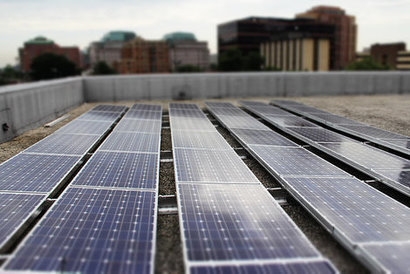
Key recommendations to the Treasury from the STA are exemption from business rates, fair tax treatment, zero-interest loans for green home improvements and a commitment to procure renewable energy for the civic estate.
A recommendation that the Government hold regular CfD auctions which include solar was adopted as policy last week.
“This government has begun to take vital first steps towards delivering net zero, but there is a lot of work to be done yet” said STA Chief Executive Chris Hewett. “Solar has a key role to play in decarbonising power and driving down emissions in heat and transport too. The industry stands ready to deliver. It is down to the government to unleash its true potential.”
The Committee on Climate Change estimates that the UK’s solar power capacity will have to triple by 2030 in order to be on track for the Government’s legally binding target of net zero greenhouse gas emissions by 2050, while a new report released by the National Infrastructure Commission estimates as much as 121GW will be needed by 2050.
Disproportionate business rates present the biggest barrier to the deployment of large rooftop solar installations today. Amendments to how rates are calculated for rooftop solar, introduced in 2017, saw the annual rates bill for an average commercial rooftop PV installation skyrocket, with one leading retailer, Lidl, saddled with an extortionate increase of 528 percent. Calls for reform, including to accommodate solar and other onsite renewable technologies, have been made by several business associations including the British Retail Consortium. An exemption from rates for solar would bring the technology on an equal tax footing with gas CHP, which is currently exempt.
Solar was hit by a change in how VAT is applied late last year, with high-end systems, those combined with battery storage, and those acquired through collective purchase schemes now liable to attract a 20 percent rate, significantly increasing the cost of some domestic systems. Following the UK’s departure from the EU, the industry rightly expects the rate change to be reversed, and the STA is calling for battery storage to be added to the Energy Saving Materials list in the interim to enable this nascent technology access to a reduced rate of 5 percent VAT.
Zero-interest loans have been utilised successfully in Scotland, through the Home Energy Scotland scheme, and a nationwide roll-out would likely drive consumer demand and ensure the 60 percent of households who want to get solar are more able to. The cost of a typical 4kW domestic system has fallen significantly over the past decade, from approximately £12,000 in 2010 to around £5,000 today.
The STA is also calling on the government to lead by example by committing to powering the civic estate with 100 percent renewable energy, which will enable cut the operating costs of the estate and accelerate its decarbonisation. Many local authorities and businesses have already committed to renewable energy procurement targets via the UK100 and RE100 schemes respectively.
For additional information:

